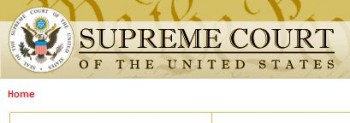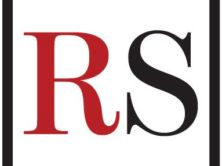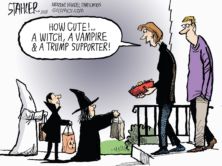
(Credit: Supreme Court, screenshot)
With the Supreme Court considering two cases involving same-sex marriage, it may be useful to review how opposed the public might be to decisions that would strike down the 1996 Defense of Marriage Act and California’s Proposition 8 banning same-sex marriage in that state.
While most recent polls show at least a plurality, if not a majority, of Americans in favor of same-sex marriage, they also indicate a substantial portion of the public opposed. An average of those polls shows 43% of Americans with that view.
Perhaps that’s in part what prompted law professor David Cole to argue that “history suggests it would be unwise for the Supreme Court to impose a uniform solution on the nation now. Doing so could touch off huge civil resistance in the most conservative states.”
But how opposed are Americans, really, to same-sex marriage? I’m not talking about a top-of-mind statement of opposition, but a more anchored response – a view that indicates people really want their view to prevail and would be upset if it did not. I’m talking about a response that might support the notion of a “huge civil resistance.”
Last June, iMediaEthics conducted its own survey, which asked a standard question about support or opposition to gay marriage, but then followed up among those people who expressed an opinion by asking if they would be “upset” if the opposite condition prevailed to what they preferred.
Overall, 28% of respondents indicated they opposed same-sex marriage and would be “very” or “somewhat” upset if it were to become valid in most states. Only 21% would be “very” upset. That’s another way of saying that between 70% and 80% of Americans would not be upset if gay marriage were to become legal.
Most media polls don’t measure intensity, but two of the recent polls did, and both show just under a quarter of the public “strongly opposed” to legalizing same-sex marriage.
Check out iMediaEthics’ report on our poll last summer on same-sex marriage.
Pew found 44% of Americans opposed overall, but just 22% strongly opposed. Similarly, the Public Religion Research Institute/Brookings poll reported 42% opposed overall, but just 23% strongly opposed.
Experience shows that Americans often take their lead on matters from prominent political leaders and from the Supreme Court. If the Court were to rule in favor of same-sex marriage, how likely would there be a “huge civil resistance in the most conservative states”?
No doubt, strong opposition is greater in some conservative states than in the country as a whole. But, as this article shows, there is much more tolerance for same-sex marriage than what most polls show. Indeed, it appears that maybe only about half of the people who say they are opposed feel that way strongly, with the rest at least tolerant of a view that disagrees with their own. This suggests that fears of mass resistance, even in conservative states, may be off the mark.






